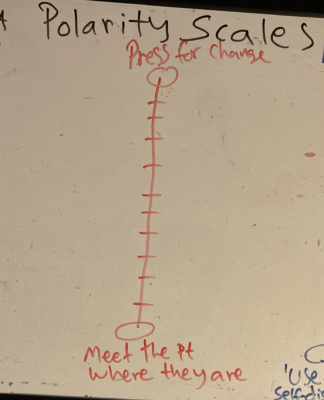“Nothing I do will ever be good enough”. “Why doesn’t he like me.” “I’m going to be alone the rest of my life”. “I always find a way to mess things up.” These are examples of chatter in an anxious mind.
When your mind is anxious you are operating out of the fight or flight mode in your brain. In this fight or flight state your brain is more likely to make critical thinking errors. An anxious mind is reinforced to find information that supports the anxiety and strengthens the negative thought patterns. For example, you may take notice of the negative information and ignore positive feedback. To break the negative thought patterns you have to acknowledge your errors in thinking and combat them. These errors can be broken into four different categories.
1. Dysfunctional. Dysfunctional thoughts do not serve you well. For example, ” I shouldn’t even try.” Dysfunctional thoughts only set you up to fail.
2. Biased. Biased thoughts are one-sided. For example, if someone you have had an issue with before walks by and does not say hello you automatically assume that they don’t like you. However, there could be multiple explanations for their behavior.
3.Distorted. Distorted thoughts don’t accurately reflect reality. Using extreme terms such as, “always,” “never,” and “nobody” are inaccurate. For example, You may assume that nobody likes you after one person treats you in an unfair manner.
4. Irrational. Irrational thoughts often times do not make sense when you thoroughly examine them. For example, If they disagree with me then they dont like me.


 I am Whitney Doyeto, M.A., LMFT, the licensed marriage and family therapist and founder of Serenity Marriage and Family Counseling, LLC. I earned both a Master of Arts in Marriage and Family Therapy and a Bachelor of Arts in Psychology from Oral Roberts University. I feel called to give hope and renewal to individuals, couples, and families. I strive to create more support, structure, and stability, into the lives of those I serve. I have been married for six years and recently welcomed my first child, a baby girl, in April of 2016. I am passionate about exercise, traveling, and volunteering at Church.
I am Whitney Doyeto, M.A., LMFT, the licensed marriage and family therapist and founder of Serenity Marriage and Family Counseling, LLC. I earned both a Master of Arts in Marriage and Family Therapy and a Bachelor of Arts in Psychology from Oral Roberts University. I feel called to give hope and renewal to individuals, couples, and families. I strive to create more support, structure, and stability, into the lives of those I serve. I have been married for six years and recently welcomed my first child, a baby girl, in April of 2016. I am passionate about exercise, traveling, and volunteering at Church.


















